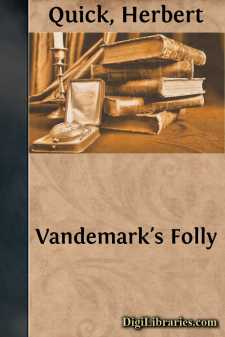Categories
- Antiques & Collectibles 13
- Architecture 36
- Art 48
- Bibles 22
- Biography & Autobiography 813
- Body, Mind & Spirit 142
- Business & Economics 28
- Children's Books 17
- Children's Fiction 14
- Computers 4
- Cooking 94
- Crafts & Hobbies 4
- Drama 346
- Education 46
- Family & Relationships 57
- Fiction 11829
- Games 19
- Gardening 17
- Health & Fitness 34
- History 1377
- House & Home 1
- Humor 147
- Juvenile Fiction 1873
- Juvenile Nonfiction 202
- Language Arts & Disciplines 88
- Law 16
- Literary Collections 686
- Literary Criticism 179
- Mathematics 13
- Medical 41
- Music 40
- Nature 179
- Non-Classifiable 1768
- Performing Arts 7
- Periodicals 1453
- Philosophy 64
- Photography 2
- Poetry 896
- Political Science 203
- Psychology 42
- Reference 154
- Religion 513
- Science 126
- Self-Help 84
- Social Science 81
- Sports & Recreation 34
- Study Aids 3
- Technology & Engineering 59
- Transportation 23
- Travel 463
- True Crime 29
The Brown Mouse
by: Herbert Quick
Description:
Excerpt
CHAPTER I
A MAIDEN’S “HUMPH”
A Farm-hand nodded in answer to a question asked him by Napoleon on the morning of Waterloo. The nod was false, or the emperor misunderstood—and Waterloo was lost. On the nod of a farm-hand rested the fate of Europe.
This story may not be so important as the battle of Waterloo—and it may be. I think that Napoleon was sure to lose to Wellington sooner or later, and therefore the words “fate of Europe” in the last paragraph should be understood as modified by “for a while.” But this story may change the world permanently. We will not discuss that, if you please. What I am endeavoring to make plain is that this history would never have been written if a farmer’s daughter had not said “Humph!” to her father’s hired man.
Of course she never said it as it is printed. People never say “Humph!” in that way. She just closed her lips tight in the manner of people who have a great deal to say and prefer not to say it, and—I dislike to record this of a young lady who has been “off to school,” but truthfulness compels—she grunted through her little nose the ordinary “Humph!” of conversational commerce, which was accepted at its face value by the farm-hand as an evidence of displeasure, disapproval, and even of contempt. Things then began to happen as they never would have done if the maiden hadn’t “Humphed!” and this is a history of those happenings.
As I have said, it may be more important than Waterloo. Uncle Tom’s Cabin was, and I hope—I am just beginning, you know—to make this a much greater book than Uncle Tom’s Cabin. And it all rests on a “Humph!” Holmes says,
“Soft is the breath of a maiden’s ‘Yes,’
Not the light gossamer stirs with less.”
but what bard shall rightly sing the importance of a maiden’s “Humph!” when I shall have finished telling what came of what Jennie Woodruff said to Jim Irwin, her father’s hired man?
Jim brought from his day’s work all the fragrances of next year’s meadows. He had been feeding the crops. All things have opposite poles, and the scents of the farm are no exception to the rule. Just now, Jim Irwin possessed in his clothes and person the olfactory pole opposite to the new-mown hay, the fragrant butter and the scented breath of the lowing kine—perspiration and top-dressing.
He was not quite so keenly conscious of this as was Jennie Woodruff. Had he been so, the glimmer of her white piqué dress on the bench under the basswood would not have drawn him back from the gate. He had come to the house to ask Colonel Woodruff about the farm work, and having received instructions to take a team and join in the road work next day, he had gone down the walk between the beds of four o’clocks and petunias to the lane. Turning to latch the gate, he saw through the dusk the white dress under the tree and drawn by the greatest attraction known in nature, had re-entered the Woodruff grounds and strolled back.
A brief hello betrayed old acquaintance, and that social equality which still persists in theory between the work people on the American farm and the family of the employer....




